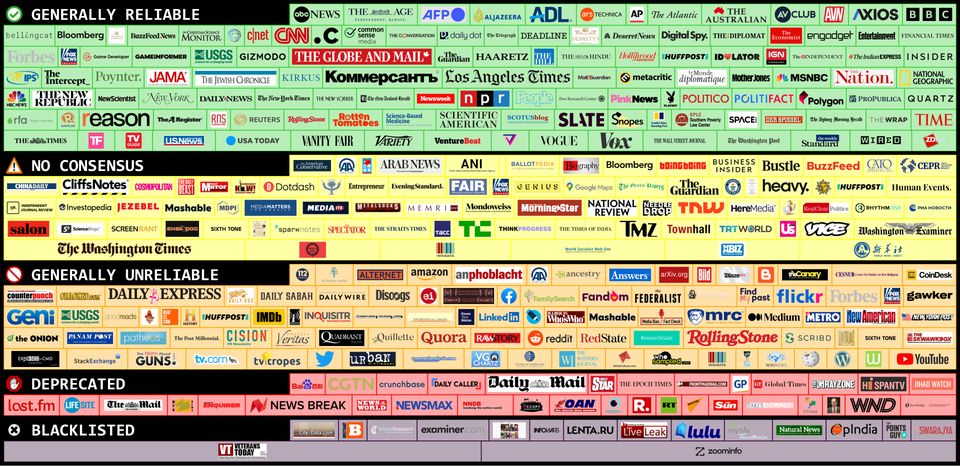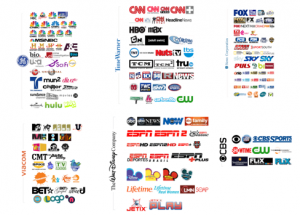Referencing: Difference between revisions
mNo edit summary |
|||
| Line 1: | Line 1: | ||
'''Historically information was scarce, now because of the internet | '''Historically information was scarce, but now information is in over abundance, because of the internet. Humans evolved to be walk in an information desert desperate for anything they could find, now we have so much we don't know what to [[A free press is one you pay for|trust]].''' Wikipedia has tried to combat this issue, by listing which sources are most reliable and excluding those which prefer clicks over fact:[[File:News hierarchy.jpg|alt=News hierarchy|center|960x960px|'''Figure 1'''. Wikipedia's news reliability hierarchy]] | ||
[[File:Corporate owners-media.png|alt=Oligo|thumb|'''Figure 2'''. Oligopolies of media.]] | [[File:Corporate owners-media.png|alt=Oligo|thumb|'''Figure 2'''. Oligopolies of media.]] | ||
Revision as of 08:29, 1 October 2022
Historically information was scarce, but now information is in over abundance, because of the internet. Humans evolved to be walk in an information desert desperate for anything they could find, now we have so much we don't know what to trust. Wikipedia has tried to combat this issue, by listing which sources are most reliable and excluding those which prefer clicks over fact:
However, the word reliable simply implies sources are not making things up, it does not take into account potential biases of each source or framing of issues to make it more digestible to specific consumers.
Thought Experiment
Imagine all the information fictional and non-fictional that could ever be produced was produced and available to anyone via the internet. Every fact would have an equal amount of arguments for and against it irrelevant of its source. Borges in his book The Library of Babel, created a thought experiment where all possible 410-page books of a certain format and character set are available to anyone. Essentially, within our own confines, this represents all knowledge humans could possibly produce. It would take several lifetimes for one person to read each and every book. Similarly, it would take multiple lifetimes to read everything on the internet, understand its source and bias and whittle out the truth. This is especially difficult as our media is being aggregated into oligopolies which often serve a specific agenda (see Figure 2).
Whilst cheat sheets like these are useful they are not infallible. The best way to be able to determine fact from fiction is via Critical Analysis.

